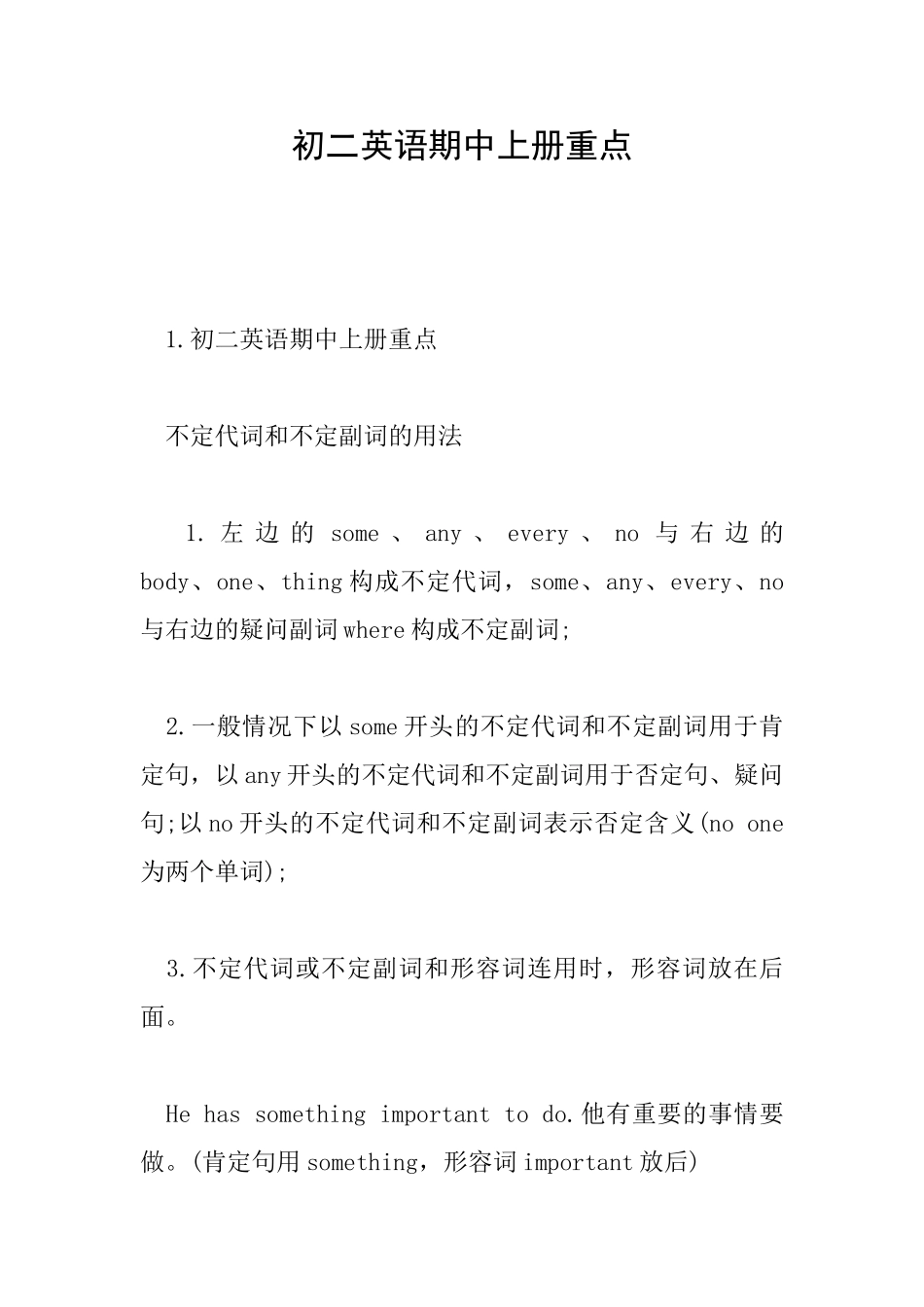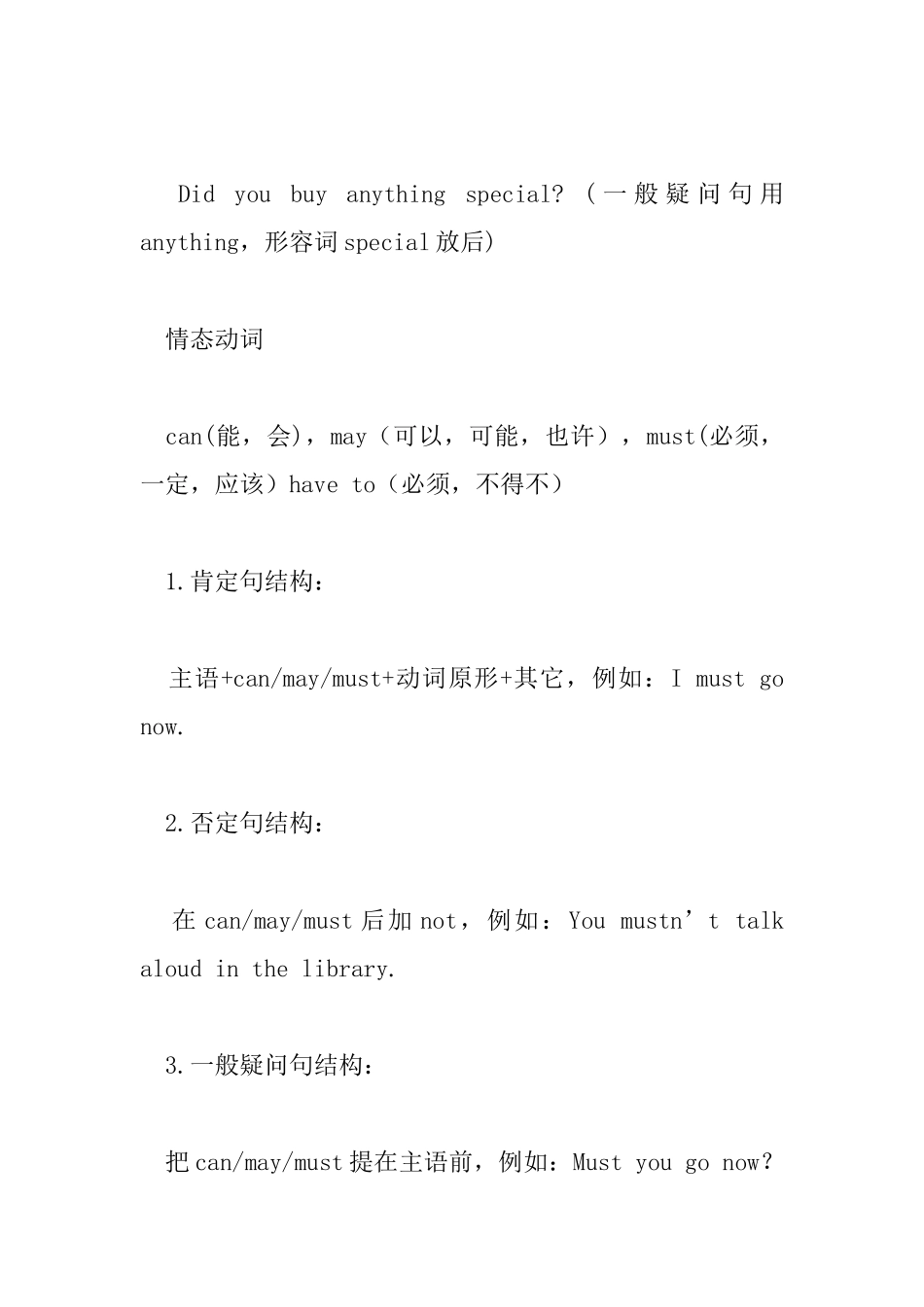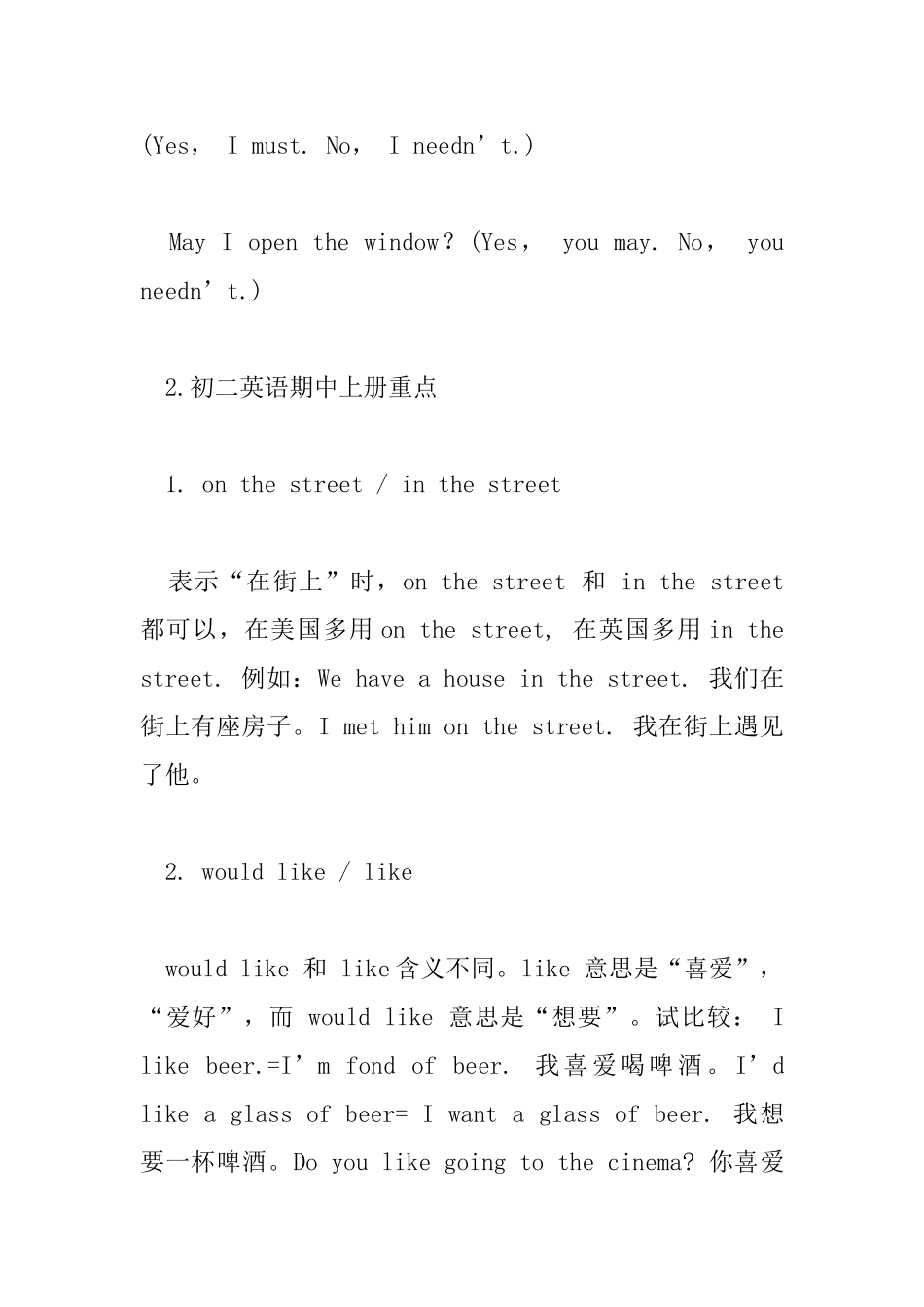初二英语期中上册重点 1.初二英语期中上册重点 不定代词和不定副词的用法 1. 左 边 的 some 、 any 、 every 、 no 与 右 边 的body、one、thing 构成不定代词,some、any、every、no与右边的疑问副词 where 构成不定副词; 2.一般情况下以 some 开头的不定代词和不定副词用于肯定句,以 any 开头的不定代词和不定副词用于否定句、疑问句;以 no 开头的不定代词和不定副词表示否定含义(no one为两个单词); 3.不定代词或不定副词和形容词连用时,形容词放在后面。 He has something important to do.他有重要的事情要做。(肯定句用 something,形容词 important 放后) Did you buy anything special? ( 一 般 疑 问 句 用anything,形容词 special 放后) 情态动词 can(能,会),may(可以,可能,也许),must(必须,一定,应该)have to(必须,不得不) 1.肯定句结构: 主语+can/may/must+动词原形+其它,例如:I must go now. 2.否定句结构: 在 can/may/must 后加 not,例如:You mustn’t talk aloud in the library. 3.一般疑问句结构: 把 can/may/must 提在主语前,例如:Must you go now?(Yes, I must. No, I needn’t.) May I open the window?(Yes, you may. No, you needn’t.) 2.初二英语期中上册重点 1. on the street / in the street 表示“在街上”时,on the street 和 in the street 都可以,在美国多用 on the street, 在英国多用 in the street. 例如:We have a house in the street. 我们在街上有座房子。I met him on the street. 我在街上遇见了他。 2. would like / like would like 和 like 含义不同。like 意思是“喜爱”,“爱好”,而 would like 意思是“想要”。试比较: I like beer.=I’m fond of beer. 我喜爱喝啤酒。 I’d like a glass of beer= I want a glass of beer. 我想要一杯啤酒。Do you like going to the cinema? 你喜爱看 电 影 吗 ?Would you like to go to the cinema tonight? 你今晚想去看电影吗? 3. another / the other (1)another 通常用于三个或三个以上或不确定数量中的任意一个人或 物体。 例如: May I have another apple, please? 请在给我一个苹果好吗? This c...


